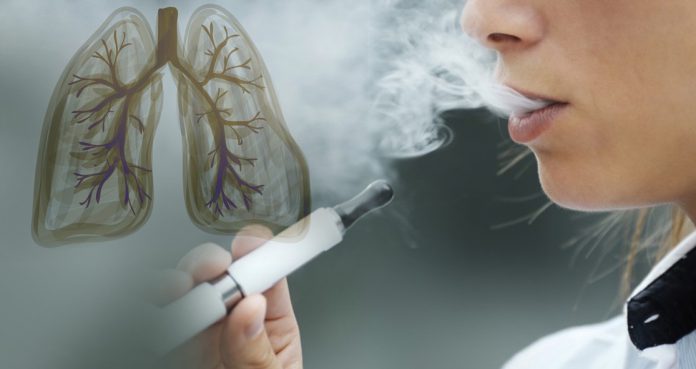The United States has been going through one of the worst outbreaks of vaping-related illness, affecting more than 2,500 people and killing 52 people as of December 17.
The U.S. Centers for Disease Control and Prevention (CDC) coined the term EVALI (E-cigarette or Vaping Product Use-Associated Lung Injury), a newly identified lung illness related to vaping.
The CDC officials are leaving no stone unturned when it comes to finding the cause of the outbreak and eliciting how it actually started. They conducted two studies and suggested that the disease may have actually started in January 2017, much, much earlier than June 2019, when the outbreak was declared.
The authors of one study, published in the New England Journal of Medicine, analyzed data from the National Syndromic Surveillance Program to determine the origin vaping-related illness and when it actually surfaced by finding out the ER visits across the nation.
They found that cases related to vaping or e-cigarettes were first mentioned in ER visits in January 2017. However, they could not say whether these cases were EVALI. The trend in ER visits continued since then, until 2019, with a sharp increase in the number of EVALI cases.
Another study, also published in the New England Journal of Medicine, found that vitamin E acetate is the key culprit in giving rise to the increasing number of EVALI cases. Vitamin E acetate is an oily substance added to some of the THC-containing vaping products. This oily substance was found in lung tissues of 48 EVALI patients.
David Hammond, a public health researcher at the University of Waterloo in Ontario, said, “The number of cases had been increasing prior to this spike, suggesting some level of under-detection prior to the outbreak in June. If the cases are primarily caused by the general effects of vaping, one would not see this type of spike.”
Lead study author and epidemiologist at CDC Kathleen Hartnett said, “Hospitalizations associated with the use of e-cig or vaping products continue at higher rates than before the summer and really do remain a concern.”
The officials said vitamin E acetate has been playing a key role in the ongoing outbreak. Principal Deputy Director of the CDC Anne Schuchat said, “We are confident vitamin E acetate is strongly linked to the EVALI outbreak.”
Meanwhile, the CDC has advised people to avoid using vaping products containing vitamin E acetate and THC, a psychoactive substance that gets you high.























